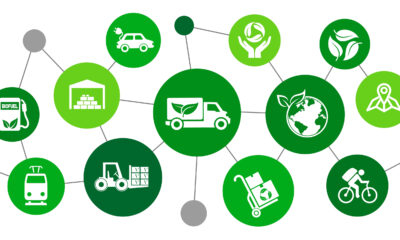

Invest
Investors call for supply chain transparency legislation in UK modern slavery bill
Investors with a total of £195 billion in assets under management are calling for Transparency in Supply Chains (TISC) legislation to be embedded in the UK modern slavery bill. They argue that human rights abuses not only present ethical concerns but also place financial returns at risk.
The group of investors say that complex supply chains can leave business vulnerable to association with human rights abuses and that embedding transparency legislation will encourage companies to take action.
Failure to manage human rights abuses can “impact dramatically on companies and their shareholders” due to reputations being damaged and supply chains being disrupted, they added.
Rathbone Investment Management, F&C, Ecclesiastical, CCLA, The Church Commissioners, the Joseph Rowntree Charitable Trust and Barrow Cadbury Trust have all added their weight to the calls.
Matt Crossman, of Rathbone Greenbank, said, “It is in the best interest of business to join the fight against modern slavery. A commitment to TISC means business reputations are enhanced and long term returns are safeguarded whilst transitioning at risk people out of forced labour and modern slavery.”
A TISC, which has been successfully piloted in California, involves companies publishing the steps they are taking to address the issue of modern slavery. A nominated board member would also have the responsibility of overseeing these steps.
It’s estimated by the International Labour Organisation that at least 21 million people live in slavery today across the world, with all regions, including the UK, being affected. These people are subjected to poor working conditions, forced labour and other forms of bonded labour.
The organisation has described the modern slavery bill as a “good start” but added the whole of society needed to play its part to eradicate slavery.
The abolition of slavery was the foundation block of ethical investment in the 18th century when Quakers called for divestment and campaigned against the industry and thee centuries later human rights abuses continues to be an important issue to ethical investors.
Last week a global faith agreement signed at the Vatican established a Global Freedom Network. This network aims to work for the eradication of modern slavery and human trafficking by 2020.
Edward Mason, secretary of the Church of England Ethical Investment Advisory Group, commented, “The eradication of slavery depends on the companies in which the Church Commissioners invest proactively rooting it out.”
Further reading:
‘Modern slavery’ legislation to be published to fight human trafficking
12 Years a Slave wine Oscar for best film – but the struggle against slavery is far from over
Investor interest in deforestation supply chain risks increasing


 Environment12 months ago
Environment12 months agoAre Polymer Banknotes: an Eco-Friendly Trend or a Groundswell?

 Features11 months ago
Features11 months agoEco-Friendly Cryptocurrencies: Sustainable Investment Choices

 Features12 months ago
Features12 months agoEco-Friendly Crypto Traders Must Find the Right Exchange

 Energy11 months ago
Energy11 months agoThe Growing Role of Solar Panels in Ireland’s Energy Future





























